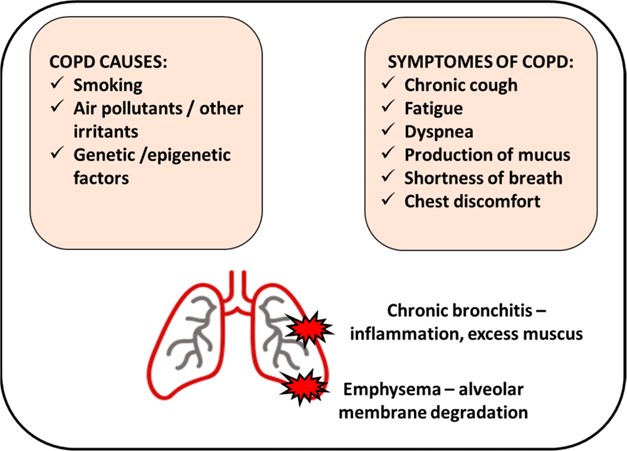The nurse is caring for a client newly diagnosed with emphysema. The nurse should prioritize which potential complication?
Self-care deficit.
Activity intolerance.
Impaired gas exchange.
Ineffective airway clearance.
The Correct Answer is C
Emphysema is a chronic obstructive pulmonary disease (COPD) characterized by the destruction of lung tissue and loss of elasticity in the alveoli. This leads to poor gas exchange, specifically the reduced ability of oxygen to enter the bloodstream and carbon dioxide to be eliminated from the body. Impaired gas exchange can result in hypoxemia and hypercapnia, leading to symptoms such as shortness of breath, fatigue, and decreased exercise tolerance.
While self-care deficit, activity intolerance, and ineffective airway clearance are all potential complications associated with emphysema, impaired gas exchange is the priority due to its direct impact on the client's oxygenation and overall respiratory function.
Addressing impaired gas exchange and optimizing oxygenation is essential to support the client's respiratory health and prevent further complications. Management strategies for impaired gas exchange may include administering supplemental oxygen, implementing respiratory treatments to improve lung function, and providing education on breathing techniques and energy conservation.

Nursing Test Bank
Naxlex Comprehensive Predictor Exams
Related Questions
Correct Answer is ["A","B","D"]
Explanation
The correct answer isa. Place a bedside commode next to bed.,b. Measure neurological vital signs every 4 hours.,d. Encourage family to participate in the client’s care.
Choice A rationale:
Placing a bedside commode next to the bed helps prevent falls and promotes independence in toileting, which is crucial for stroke patients who may have mobility issues.
Choice B rationale:
Measuring neurological vital signs every 4 hours is essential to monitor for any changes in the patient’s condition, which can help in early detection of complications.
Choice C rationale:
Suctioning the oral cavity every 4 hours is not typically necessary unless the patient has specific issues with swallowing or secretion management.Routine suctioning can also cause discomfort and potential injury.
Choice D rationale:
Encouraging family to participate in the client’s care provides emotional support and helps in the rehabilitation process.Family involvement can improve the patient’s motivation and adherence to the rehabilitation plan.
Choice E rationale:
Playing classical music in the room can be soothing and beneficial for some patients, but it is not a standard intervention for stroke rehabilitation.The effectiveness of music therapy can vary based on individual preferences.
Correct Answer is D
Explanation
Itraconazole is an antifungal medication used to treat a variety of fungal infections. Antacids, which are used to treat heartburn and acid reflux, can decrease the absorption of itraconazole in the body. Therefore, it is important to instruct the client to avoid taking itraconazole with antacids. If the client needs to take an antacid, it should be taken at least 2 hours before or after taking itraconazole.
Reporting any difficulty with breathing is important as it can be a sign of an allergic reaction to the medication. Monitoring for changes in stool color is important as it can be an indication of liver dysfunction, which is a potential side effect of itraconazole.
Avoiding the consumption of grapefruit juice is important as it can increase the level of itraconazole in the body, which can increase the risk of side effects.
In summary, the client should be instructed to avoid taking itraconazole with antacids and to take any antacid at least 2 hours before or after taking itraconazole. The client should also be instructed to report any difficulty with breathing and to monitor for changes in stool color. Additionally, the client should avoid consuming grapefruit juice while taking itraconazole.
Whether you are a student looking to ace your exams or a practicing nurse seeking to enhance your expertise , our nursing education contents will empower you with the confidence and competence to make a difference in the lives of patients and become a respected leader in the healthcare field.
Visit Naxlex, invest in your future and unlock endless possibilities with our unparalleled nursing education contents today
Report Wrong Answer on the Current Question
Do you disagree with the answer? If yes, what is your expected answer? Explain.
Kindly be descriptive with the issue you are facing.
